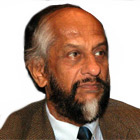The InterAcademy Council report on the IPCC — Climate Change Assessments: Review of the Processes and Procedures of the IPCC — released yesterday, calls for “fundamental reforms” to the IPCC’s management structure and review processes. Climate Central provides a useful summary of the key findings:
- The IPCC should create an Executive Committee to run the organization in between major conferences.
- Rather than have the IPCC director serve for two six-year terms, a new director should be appointed for each major assessment report (there have been four so far). Since the IPCC is well into the fifth assessment, it isn’t clear whether Dr. Pachauri will step down (he’s evidently said that any decision will have to wait for the next IPCC meeting, in Korea in October).
- The reviewers who decide what makes it into the final report and what doesn’t should work harder to address comments from authors, and to let dissenting views be reflected more fully in the finished product.
- Statements about certainties and uncertainties about climate science need to be more explicit, need to be based on a more uniform set of criteria, and need to be clearer about how they were calculated.
- The IPCC in general needs to be more open and transparent about how it goes about its business.
- The IPCC needs to improve the way it deals with so-called “grey literature”– that is, non-peer-reviewed reports that contain valuable information, but which haven’t already been subjected to strict scientific scrutiny.
Professor Martin Manning, Director of the Climate Change Research Institute at Victoria University of Wellington told the Science Media Centre that he welcomed the report:
The IAC has run a detailed review of the process used by the IPCC for assessing scientific understanding and this has produced a number of useful comments that I think most climate scientists will agree with. Their report accepts that scientific understanding of climate change is developing rapidly and this means that the process for assessing it for policymakers needs to become more dynamic.
More reaction: Roger Harrabin at the BBC, Guardian, New Scientist, plus the UN webcast of the press conference is here.
My take? It would be a miracle if a 22 year old organisation with minimal full-time staff that has seen its raison d’être move up to the top of the list of global priorities couldn’t be improved. The suggestions look sensible, and if they help to defuse the continuing attacks from the usual suspects, so much the better.

 Back in March I
Back in March I  We know that the vast majority of climate scientists support the explanation of anthropogenic climate change set out by the Intergovernmental Panel of Climate Change. That majority is now quantified in the first study of its kind published yesterday in the Proceedings of the National Academy of Sciences,
We know that the vast majority of climate scientists support the explanation of anthropogenic climate change set out by the Intergovernmental Panel of Climate Change. That majority is now quantified in the first study of its kind published yesterday in the Proceedings of the National Academy of Sciences,  Three months after Simon Lewis laid a complaint with the UK’s Press Complaints Commission, which I reported
Three months after Simon Lewis laid a complaint with the UK’s Press Complaints Commission, which I reported